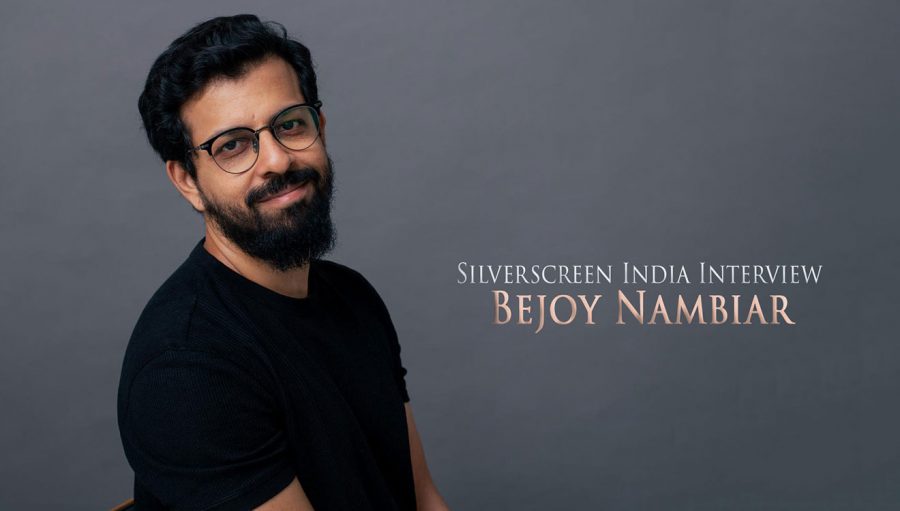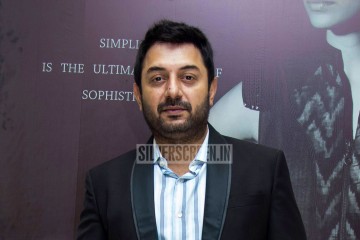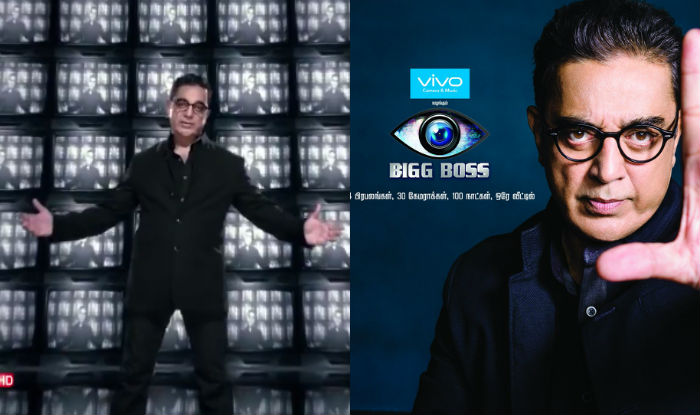After the 2020 Hindi revenge thriller Taish, which released both as a standalone feature film and a six-episode web series, Bejoy Nambiar’s next directorial is Edhiri in Netflix’s nine-part Tamil anthology Navarasa.
The segment takes on the theme of compassion. About 30 minutes long, it stars actors Vijay Sethupathi, Revathi and Prakash Raj in the lead roles. “It’s a dream cast,” says Bejoy. “Since this project is being done for a noble cause, they were all open to hearing our pitch. But I think the story and their character resonated with all three actors.”
The story of Edhiri is written by veteran filmmaker Mani Ratnam. “So there was a very strong emotional hook to it, which is what connected with all of them,” says Bejoy.
Edhiri in Navarasa marks Bejoy’s return to Tamil cinema after the 2017 bilingual anthology film Solo. The film will release on Netflix on August 6.
“It’s an emotional tale of forgiveness and acceptance. The theme is compassion but the story is about forgiveness and acceptance,” Bejoy says about his segment in the anthology.
Winner of Sony Pix’s Gateway to Hollywood short film competition in 2008, Bejoy made his feature film debut 10 years ago, in 2011, with the Hindi drama Shaitan. The film won him the Colors Screen Award for Most Promising Debut Director that year. In 2013, he directed the bilingual film David, starring actors Vikram and Jiiva among others, and in 2016, he directed the Hindi film Wazir, starring Amitabh Bachchan and Farhan Akhtar, followed by Solo, starring Dulquer Salmaan, the next year.
Bejoy has also assisted Mani Ratnam in Guru (2007) and Kaatru Veliyidai (2017). In addition to feature films, he has worked on short films and a web anthology series Flip (Eros Now).
Today, he is best known for his visually-stunning, signature style of filmmaking and unconventional narratives. In this exclusive conversation with Silverscreen India, Bejoy talks at length about working on Edhiri, how he weaves music into his films and his history with Tamil cinema.
In all your previous works, be it Shaitan, Solo or Taish that released most recently, music plays a really important role. And it’s always a mix of music composers and singers that are carefully curated and in the end work very well in the film. Have you followed a similar process for your segment in Navarasa?
Because Navarasa is a shorter format — it is just a short film of 30 minutes — I didn’t venture out and use too many different musicians. Govind (Vasantha) is the sole composer for the film. He composed the background score and the original song which was written by Madhan Karky and performed by Chinmayee.
In this particular venture, there wasn’t much scope for me to work with other musicians. But yeah, music is something which is very integral to my storytelling. Initially, there was no song in Edhiri, but by the end of it, we just felt that this song would be apt for this situation and I asked Mani sir. He said, ‘If you have the budget, go ahead and do it.’ I said, ‘I’m doing it within the budget only.’ (laughs) He said okay and we got the song recorded.
You’re a frequent collaborator with Govind Vasantha. Who are your favourite music directors?
There are many composers that I have worked with and there are many composers that I look up to. Be it Raaja sir, be it Rahman sir, be it the many different musicians I’ve worked with over here (in the South) also. I’m a big music buff. That’s why, in my movies, you see that I always work with a lot of musicians. I don’t have any favourites as such; I’m constantly listening to stuff and sampling stuff and working with new composers as well. In every film, I’ve managed to work with at least one new composer. That’s because I keep searching for new music.
What other aspects do you think about while writing a script?
As a director, you tend to think of everything. You are seeing the final product in your head even before you go on the floor. Once the script is locked, you’re already kind of imagining how it’s going to play out in the edit, how it will play out with the score, with the sound. Even with the actors, you’re thinking of how you’re going to pitch particular scenes. You’re constantly playing that in your head. I visualise everything; I visualise the end product when I go in.
Coming back to Navarasa, as I understand it, there were 9 ‘rasas’ or emotions that you could pick as a theme for your segment. What was your first pick?
My first pick was Roudhram, anger. I was already working with that theme when I got a call from Mani sir saying that Arvind (Swami) sir had chosen anger too. So, I had to bow out of it (laughs) and choose from the other four rasas that were left. Thankfully, I’d only been working on it for 2-3 days. I eventually chose compassion.
You’ve made both feature films as well as shorter films and anthologies. Which form are you most comfortable with?
I’m comfortable with any format, as long as I get to tell the story the way I want to tell it. It can be a 30-second commercial also. Not that I do commercials (laughs). I’m comfortable with any format where I get to express and tell the story in my own way. It might work, it might not work, but at the end of it, I should be able to stand by it and say ‘This is what I’ve made.’ So, format doesn’t matter.
And I don’t think that a short film should be approached like a short film. I think any project should be approached like a feature only. In that window, you’re telling a story. It’s a story at the end of the day.
You have made Solo and David, both bilingual films. How do you decide which scripts work in which languages?
From the genesis of the story itself. Once the story is decided, then you kind of decide the milieu, the settings, and where it will resonate with the audience. Will it work better here? Will it work better there? It all starts from the idea and the story. The story decides that. That becomes your trigger for everything actually.
There is a new wave happening in Malayalam cinema right now. There has been an impressive slate of experimental, off-beat films coming from the industry. Is this something that interests you? What are your thoughts on the spotlight that is on Malayalam cinema right now?
I’m so happy that Malayalam cinema is getting the attention that it rightfully deserves. What is really heartening is the response that it is getting from all over the country. Tamil Nadu and Andhra used to anyway support Malayalam cinema, but now it’s coming from across the country and from different parts of the world. Also, earlier, it used to be that every 3-4 months, you hear of one good film. Now, you hear it almost on a monthly basis. There are people who are really pushing the envelope and putting out very interesting and inspiring work. I’m really glad the spotlight is on Malayalam cinema. I’m sure it’s encouraging the film fraternity there to do more.
Do you have plans of making another Malayalam film?
I would love to. Given the right opportunity, I would definitely jump into it.
Are there any actors you want to work with?
There are so many good actors everywhere, in Tamil, Telugu, Malayalam. There are so many actors that I want to work with. But the subject should justify that and the film has to dictate that.
What is your history with Tamil cinema?
I grew up in a locality that was 99% Tamilians. And we all used to watch a lot of Malayalam and Tamil films together. For me, the lines were blurry. I used to enjoy both Tamil and Malayalam films while growing up. My link to Tamil cinema started quite early on; I was introduced to it at a very early age. Now, to be actually part of that industry and make films here, I consider myself very fortunate. I think it’s that grounding and watching those films that groomed me for this, that pushed me to want to try and make films here.
You’ve chosen to produce a lot of your own films recently. Does this offer more creative liberty?
I’ve always done that. From my first film, I’ve been a producer. Like you rightfully said, it offers more creative liberty. When you direct and produce, you have a stake in what you’re putting out. You’re equally responsible, you’re accountable. You’re not just a director for hire. Your skill is also part of the game. And your investment gives you some leverage and control over what you’re doing. It’s purely for those reasons that I am producing. I have to take a personal hit when I do that because I have to, somewhere, give up something to get that. But I don’t mind that because it’s very important that I get to control things.
Is the success of a film that you produce important to you?
Of course. As a director, you always want to make sure that what people are putting in, what they are investing in you, in your vision, they should be able to recoup that. If not a profit, they should always be able to recoup what they put in. That responsibility is always in my head.
What would you say is the work that you are most proud of?
Edhiri.
Any reasons for this?
When you watch it, I’ll be in a better space to talk about it. But I think it was the most creatively satisfying project for me. Though it’s in a shorter format, it was very, very satisfying for me to make.
You’re also assisting Mani Ratnam in Ponniyin Selvan as an Assistant Director. How has that experience been so far?
I think it is one of Mani sir’s most ambitious projects and it’s being done in such a massive scale. He’s really going all out and pouring his heart into making the film. And we’ve got a phenomenal cast and crew. It’s shaping up fabulously well. I’m just so excited to see how the audience responds to it when they finally see the vision that Mani sir has for the film.
What are your thoughts on the Cinematograph Amendment Bill and the new IT rules? What do you reckon the impact is going to be like downstream?
Recommended
It has still not come into play. I’m definitely against it. As an idea, it’s definitely regressive. Let’s see how it pans out. But I’m definitely not for it.
Is there a voice within yourself that calls for restraint, especially when it comes to covering a subject that is considered controversial and can cause outrage in the country today?
People are way more intolerant now. And films are the first medium they come and vent out at. As filmmakers, writers, even if we don’t publicly acknowledge it, it’s there in the back of your head when you’re writing, that it should not hurt anyone’s sentiments. So you’re mindful of it but I think filmmakers will find ways to work around it. That’s what I do. I’m sure that’s what others do also.



